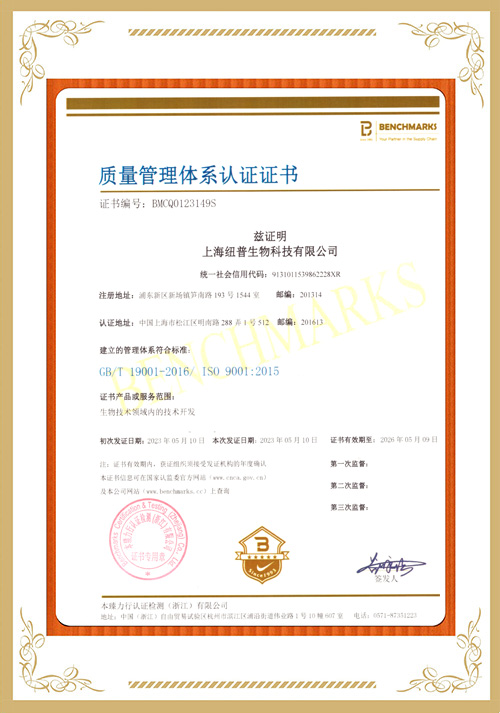UBC Polyclonal Antibody
- 抗体类型:多克隆
- 抗体来源:兔
- 抗体应用:WB, IHC, IF
- 特异性:Human, Mouse, Rat
产品详情
-
产品名称
UBC Polyclonal Antibody
-
抗体类型
多克隆
-
抗体来源
兔
-
抗体亚型
兔IgG
-
抗体描述
Polyclonal antibody to UBC
-
抗体应用
WB, IHC, IF
-
应用推荐
WB 1:1000 - 1:2000
IHC 1:50 - 1:100
IF 1:50 - 1:100
-
特异性
Human, Mouse, Rat
-
蛋白别名
UBC, HMG20, ubiquitin C
-
制备方法
Antigen: A synthetic peptide corresponding to a sequence within amino acids 1-100 of human UBC (NP_066289.3).
-
组分
PBS with 0.02% sodium azide, 50% glycerol, pH7.3.
-
储存方法
Store at -20℃. Avoid freeze / thaw cycles.
-
背景介绍
Ubiquitin: Exists either covalently attached to another protein, or free (unanchored). When covalently bound, it is conjugated to target proteins via an isopeptide bond either as a monomer (monoubiquitin), a polymer linked via different Lys residues of the ubiquitin (polyubiquitin chains) or a linear polymer linked via the initiator Met of the ubiquitin (linear polyubiquitin chains). Polyubiquitin chains, when attached to a target protein, have different functions depending on the Lys residue of the ubiquitin that is linked: Lys-6-linked may be involved in DNA repair; Lys-11-linked is involved in ERAD (endoplasmic reticulum-associated degradation) and in cell-cycle regulation; Lys-29-linked is involved in lysosomal degradation; Lys-33-linked is involved in kinase modification; Lys-48-linked is involved in protein degradation via the proteasome; Lys-63-linked is involved in endocytosis, DNA-damage responses as well as in signaling processes leading to activation of the transcription factor NF-kappa-B. Linear polymer chains formed via attachment by the initiator Met lead to cell signaling. Ubiquitin is usually conjugated to Lys residues of target proteins, however, in rare cases, conjugation to Cys or Ser residues has been observed. When polyubiquitin is free (unanchored-polyubiquitin), it also has distinct roles, such as in activation of protein kinases, and in signaling.
声明:本公司出售产品只能用于科研目的,不得用于诊断或者治疗!


